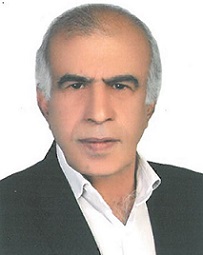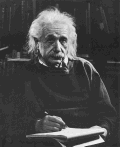نظریه سی پی اچ بر اساس تعمیم سرعت نور از انرژی به ماده بنا شده است.
سی پی اچ در ژورنالها
|
هاوکینگ: اگر بوزون هیگز کشف نشده بود فیزیک جالب تر بود!
|
|
فیزیکدان مشهور بریتانیایی اظهار داشت که اگر بوزون هیگز کشف نمی شد، فیزیک بسیار جالب تر از این بود. پروفسور هاوکینگ یک دلیل شخصی برای ناراحتی خود از این کشف داشت و آن شرط بستن با «گوردون کین» از دانشگاه میشیگان بر سر کشف نشدن این ذره بود که با کشف بوزون هیگز مبلغی متضرر شد.
به گزارش مهر، کشف بوزون هیگز یا ذره ای که جرم ماده را توضیف می دهد به عنوان بزرگترین کشف علمی مدرن توصیف شده است و به همین دلیل هم جایزه نوبل فیزیک امسال را از آن خود کرد، اما همه از این بابت تحت تأثیر قرار نگرفتند. استیون هاوکینگ فیزیکدان ۷۱ ساله بریتانیایی در مراسم موسسه علم لندن که برای راه اندازی نمایشگاه جدید برخورد دهنده برگزار شده بود گفت که اگر بوزون هیگز کشف نمی شد فیزیک جالب تر بود. بدون این جرم ذرات با سرعت در عالم هستی درحال حرکت بودند و قادر نبودند که برای شکل دادن اتمها به یکدیگر متصل شوند و در نتیجه هیچ چیز شکل نمی گرفت. این ذره با استفاده از برخورد دهنده بزرگ هادرون به عنوان پرانرژی ترین برخورد دهنده ذرات توسط سازمان تحقیقات هسته ای اروپا (سرن) در سال ۲۰۱۲ مشاهده و کشف شد. هاوکینگ با دلایل شخصی نسبت به این کشف که برای پیتر هیگز و فرانسوا انگلر جایزه نوبل فیزیک به همراه آورد ، تأسف می خورد. هاوکینگ گفت: من با گوردون کین از دانشگاه میشیگان شرط بسته بودم که ذره هیگز پیدا نمی شود و جایزه نوبل موجب شد که مبلغ ۱۰۰ دلار به وی بپردازم. وی در جریان سخنرانی خود با اشاره به این که وی طولانی ترین بازمانده بیماری ALS یا بیماری نورونهای حرکتی است به روزهایی که خود دانشجوی علوم طبیعی در دانشگاه آکسفورد بود اشاره و تصدیق کرد در جریان سه سال دوران دانشجویی خود ۱۰۰۰ ساعت به شکل یک ساعت در یک روز کار کرده است. استیون هاوکینگ همچنین توضیح داد چرا وی به یکی از هیجان انگیزترین ایده های فیزیک امروز یعنی نظریه “M” اعتقاد دارد. این نظریه بیان می دارد که هزاران جهان متفاوت وجود دارد و این جهان های چندگانه می توانند به طور طبیعی از قوانین فیزیکی سرچشمه گرفته باشند. هر جهان دارای تاریخهای احتمالی بسیاری هستند و احتمالا دارای کشورهای احتمالی هستند این جهان ها شبیه جهانی که ما مشاهده می کنیم هستند اما برای هرگونه شکل حیات نامناسب محسوب می شوند و تنها جهان های معدودی می تواند میزبان موجوداتی مثل ما باشند. او اعتقاد دارد که این احتمال وجود دارد که نخستین شواهد نظریه “M” در برخورد دهنده بزرگ هادرون مشاهده شود. فیزیکدانهای نظری نیز اظهار داشته اند که آینده نژاد بشر به اتفاقاتی بستگی دارد که در فضا رخ می دهد. هاوکینگ همچنین اظهار داشت: فکر نمی کنم که ما یک هزار سال دیگر بدون فرار از مرزهای سیاره شکننده و ضعیف خود بتوانیم به بقا ادامه دهیم. این نمایشگاه به بازدید کنندگان این امکان را می دهد که به پشت صحنه برخورد دهنده بزرگ هادرون و سرن که در آزمایشگاه فیزیک ذرات در ژنو قرار دارد نگاهی بیاندازند. نقش بوزون هیگز دادن جرم به ذراتی است که از اتم تشکیل شده اند. این ذره به عنوان قطعه گمشده مدل استاندارد فیزیک توصیف شده است که توضیح می دهد چگونه بخشهای کل کیهان به شکلی که ما درک می کنیم با هم در تعامل هستند. وی در پایان به شرکت کنندگان در این مراسم گفت: « یادتان باشد به ستاره ها نگاه کنید نه زیر پاهایتان، سعی کنید آنچه را که می بینید درک کنید و شگفتی کودک واری را درباره وجود جهان هستی داشته باشید. » Read More : http://www.theguardian.com/science/2013/nov/12/stephen-hawking-physics-higgs-boson-particle نامه سرگشاده به حضرت آیت الله هاشمی رفسنجانی
Stephen Hawking: physics would be 'more interesting' if Higgs boson hadn't been found
The cosmologist was speaking at an event to mark the launch of a new exhibit about the Large Hadron Collider (LHC) at the Science Museum in London and discussing the unanswered questions at the edges of modern physics as part of a history of his own work in the field. Though the Higgs boson was predicted by theory in the early 1960s, not everyone believed it would be found. If it had not been, physicists would have had to go back to the drawing board and rethink many of their fundamental ideas about the nature of particles and forces – an exciting prospect for some scientists. "Physics would be far more interesting if it had not been found," said Hawking. "A few weeks ago, Peter Higgs and François Englert shared the Nobel prize for their work on the boson and they richly deserved it. "Congratulations to them both. But the discovery of the new particle came at a personal cost. I had a bet with Gordon Kane of Michigan University that the Higgs particle wouldn't be found. The Nobel prize cost me $100." Hawking hoped the LHC would now move on from the Higgs boson to look for more evidence of fundamental theories that explain the nature of the universe and, in particular, he hoped it would find the first evidence for M-theory, which many believe is the best candidate physicists have to unify the four fundamental forces of nature. M-theory unites gravity (which rules at the largest scales of the universe) with quantum mechanics (which controls the behaviour of atoms and smaller particles). As yet there has been no incontrovertible experimental evidence to show that M-theory is correct. "There is still hope that we see the first evidence for M-theory at the LHC particle accelerator in Geneva," said Hawking. "From an M-theory perspective, the collider only probes low energies, but we might be lucky and see a weaker signal of fundamental theory, such as supersymmetry. "I think the discovery of supersymmetric partners for the known particles would revolutionise our understanding of the universe." Supersymmetry is the concept that known particles – such as electrons, quarks and photons – have a heavier and as-yet-undetected "superpartner". The superpartners of quarks and electrons, for example, are called squarks and selectrons; the superpartners of the Higgs, and of force carriers such as the photon, are the higgsino and photino.Experimental evidence for the idea has, however, been elusive. In recalling the bet he made with Kane about the Higgs boson, Hawking admitted enjoying gambling. "Throughout my life, I have had a gambling problem," he said. "When I was 12, one of my friends bet another friend a bag of sweets that I would never come to anything. "I don't know if this bet was ever settled, and if so, which way it was decided. "I had six or seven close friends, and we used to have long discussions and arguments about everything, from radio-controlled models to religion. One of the things we talked about was the origin of the universe, and whether it required a God to create it and set it going." Hawking is no stranger to losing bets about the nature of cosmos. Along with Kip Thorne, he bet John Preskill that information should be destroyed when something fell into a black hole. The so-called "information paradox" was troubling because Hawking's calculations suggested that anything that fell into a black hole would be obliterated, including the information about what that stuff was. But destroying information is not allowed under the rules of quantum mechanics. After 30 years of arguing, Hawking said he eventually found a resolution. "Information is not lost in black holes, but it is not returned in a useful way," he said. "It is like burning an encyclopaedia. Information is not lost, but it is very hard to read." He gave Preskill a baseball encyclopaedia to concede his side of the bet. "Maybe I should have just given him the ashes. The fact that I used to think that information was destroyed in black holes was my biggest blunder. Well, at least it was my biggest blunder in science." Many of Hawking's insights have come from studying the cosmos, and the scientist said people needed to get more interested in the spacearound us for more prosaic reasons. "We must also continue to go into space for the future of humanity," he said. "I don't think we will survive another thousand years without escaping beyond our fragile planet. I therefore want to encourage public interest in space, and I've been getting my training in early." Hawking recently took part in a zero-gravity flight, which is part of the training for astronauts to experience the weightlessness of space. Hawking said that the recent Nobel prize for Engelert and Higgs had been a reminder to him that it was "a glorious time to be alive and doing research in theoretical physics. Our picture of the universe has changed a great deal in the past 50 years, and I'm happy if I have made a small contribution." He added: "So remember to look up at the stars and not down at your feet. Try to make sense of what you see and hold on to that childlike wonder about what makes the universe exist." Source: theguardian
1 2 3 4 5 6 7 8 9 10 11 12 13 14 15 16 17 18 19 20 21 22 23 24 25 |
|
Sub quantum space and interactions from photon to fermions and bosons |
|
نامه سرگشاده به حضرت آیت الله هاشمی رفسنجانی |
آرشیو موضوعی

از آغاز کودکی به پدیده های فیزیکی و قوانین حاکم بر جهان هستی کنجکاو بودم. از همان زمان دو کمیت زمان و انرژی بیش از همه برایم مبهم بود. می خواستم بدانم ماهیت زمان چیست و ماهیت انرژی چیست؟
